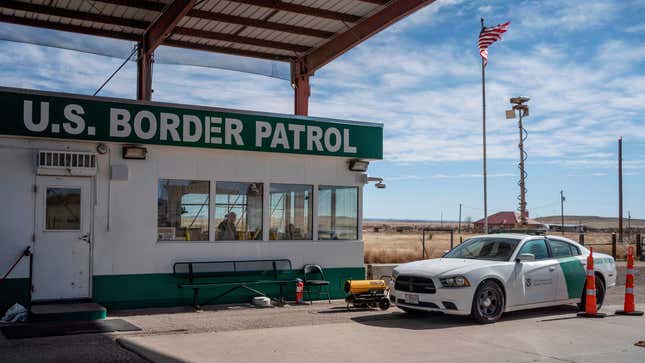Border Patrol Forced an Asylum Seeker to Give Birth While Clutching Trash Can, According to ACLU
NewsPolitics

A new complaint filed by the ACLU and Jewish Family Services details the horrific treatment of a Guatemalan woman who gave birth in a southern California Border Patrol station in February and alleges that Border Patrol agents ignored her and her husband’s pleas for medical care. The details are horrific—the woman, who is identified as Ana by advocates, ended up giving birth while standing up and clutching a trash can for support.
According to the complaint, Ana, her husband, and their two young daughters initially came to the United States from Guatemala to seek asylum in May of 2019, but were sent to Tijuana, Mexico as part of the Trump administration’s “Remain in Mexico” policy. This policy, implemented in January 2019, sends asylum seekers to Mexico to await their immigration hearings, where they are forced to live in tent camps and are vulnerable to sexual assault, kidnappings, and even torture. Ana became pregnant while in Tijuana. After receiving threatening phone calls from the people in Guatemala her family was fleeing from, Ana and her family decided to once again attempt to migrate to the United States. Her contractions began as they crossed the desert. Per the Los Angeles Times:
-

-

-

-

-

-

-

-

-

-

-

-

-

-

-

-

-

-

-

-

-

-

-

-

-

-

-

-

-

-

-

-

-

-

-

-

-

-

-

-








































